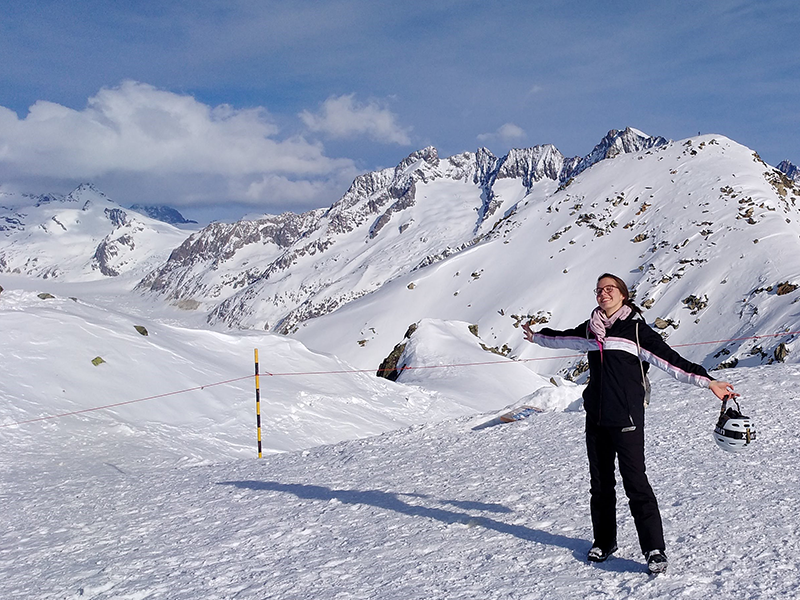The Master in Chemical Biology offers the opportunity to gain theoretical knowledge in the field of chemical biology and to perform hands-on research in labs benefiting from a state of the art environment and close mentorship. Students involved in the Master at the University of Geneva and EPFL come from all over the world and have a very diverse scientific background. Coming from South Africa, meet Tiana Schwab, currently conducting her master thesis project. Get inspired by her student path!
What did you study in your bachelor?
I completed my Bachelor of Science at the University of Cape Town in South Africa and majored in genetics, biochemistry and bioinformatics.
Why do you want to learn more about Chemical Biology?
There is a lot of interesting research happening at the intersection of chemistry and biology. I hope to increase my understanding and familiarity with concepts in chemistry and chemical biology seems to provide some of the most useful approaches for investigating biological systems using chemical tools.
What is your favorite part of your studies so far?
I thoroughly enjoyed the internships, where I got to see some of the research that is being conducted in the groups of the NCCR Chemical Biology. It was also an informative insight into how the working environments of laboratories can differ.
What do you like most about the Master in Chemical Biology and why?
What I like most about the Master in Chemical Biology is that I have two full semesters to conduct my research project. This allows me to get properly involved in a project and in the research group. I’m currently working in the LPDI lab of Prof. Bruno Correia at the EPFL, where I am learning a lot of practical, hands-on experience, which surely is valuable preparation for later working environments.
What technique(s) have you learned in your master project?
At the moment I am learning to use the Rosetta modeling software to computationally design protein structures. In the wet lab, I was taught some protein purification and further down the line I will also have the opportunity to learn yeast surface display.
What excites you more about your master project?
I was drawn to this project because it offers a broad spread of new techniques to learn while giving me the opportunity to combine and build on the knowledge from different aspects of my undergraduate education. I also like that it encompasses an entire process, starting with (theoretical/computational) design, through to optimization and experimental validation.
Did you have time to explore Geneva and Lausanne and if yes what did you like the most?
Yes. The Bain de Pâquis is lovely for a picnic with friends on a sunny afternoon. I also love the architecture of the city, particularly in the old town and Carouge where you get a real sense of the history of Geneva.
Do you have advice for the students who are thinking of applying to this program?
Make use of all the really helpful people involved in this program, like Phaedra Simitsek, COO of the NCCR Chemical Biology. Don’t hesitate to get into contact with current students and lecturers who are usually more than willing to answer any questions you might have about the program or the different research areas.
Born in Switzerland, but raised and educated in Cape Town, South Africa, Tiana Schwab completed a Bachelor of Science at the University of Cape Town majoring in genetics and biochemistry. Tiana had an interest in coding, so she continued to obtain a Bachelor of Medical Science Honours degree in bioinformatics before deciding to return to Switzerland for her masters. She is currently conducting her master’s project in the LPDI group at EPFL, where she is attempting to computationally design novel specific protein binders and to experimentally validate those. Besides her studies, Tiana enjoys reading a quirky book, good food and discovering Switzerland and surrounding Europe with friends.


Leave a comment
The editors reserve the right not to publish comments or to abridge them.